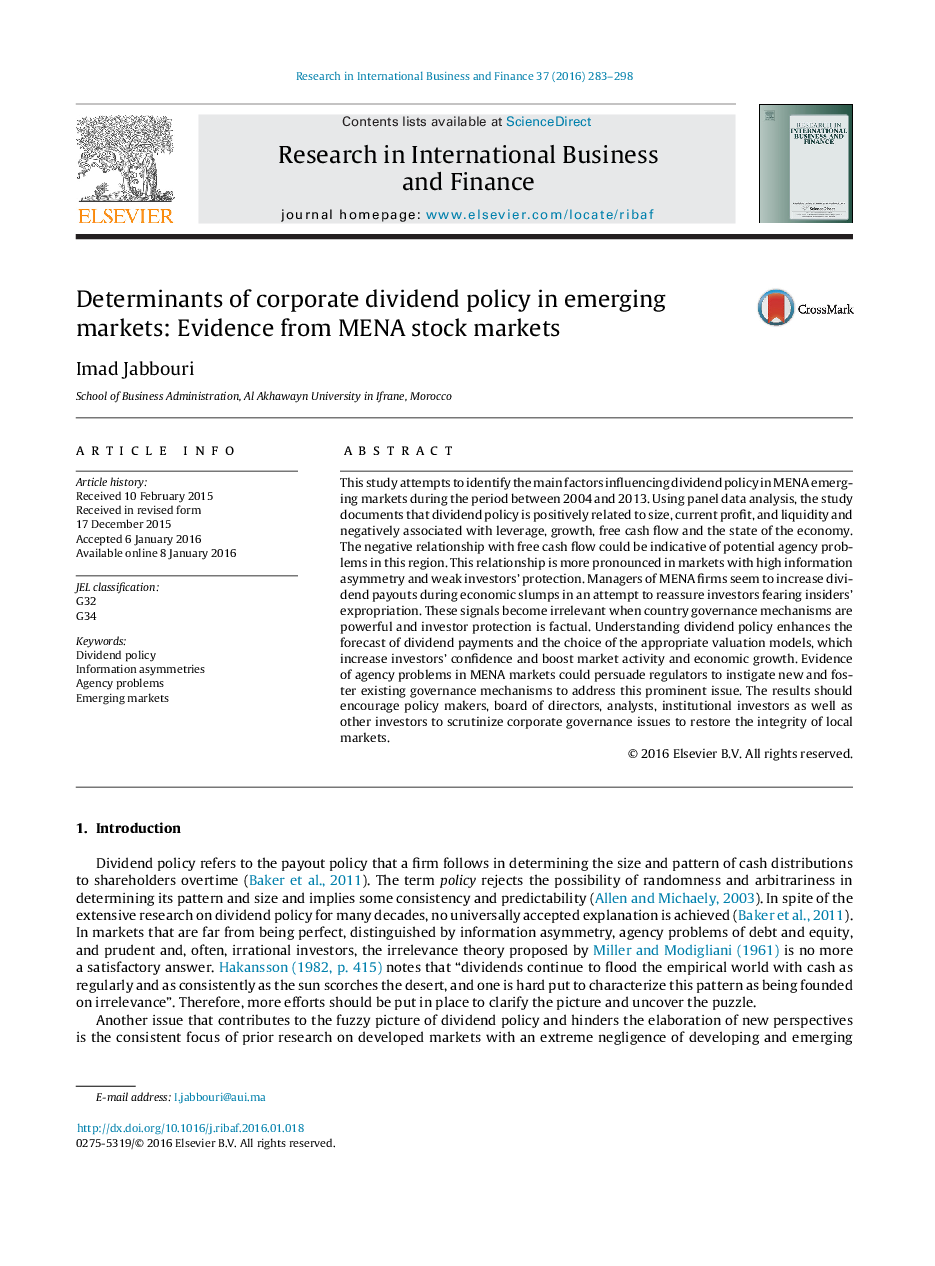| Article ID | Journal | Published Year | Pages | File Type |
|---|---|---|---|---|
| 1003065 | Research in International Business and Finance | 2016 | 16 Pages |
This study attempts to identify the main factors influencing dividend policy in MENA emerging markets during the period between 2004 and 2013. Using panel data analysis, the study documents that dividend policy is positively related to size, current profit, and liquidity and negatively associated with leverage, growth, free cash flow and the state of the economy. The negative relationship with free cash flow could be indicative of potential agency problems in this region. This relationship is more pronounced in markets with high information asymmetry and weak investors’ protection. Managers of MENA firms seem to increase dividend payouts during economic slumps in an attempt to reassure investors fearing insiders’ expropriation. These signals become irrelevant when country governance mechanisms are powerful and investor protection is factual. Understanding dividend policy enhances the forecast of dividend payments and the choice of the appropriate valuation models, which increase investors’ confidence and boost market activity and economic growth. Evidence of agency problems in MENA markets could persuade regulators to instigate new and foster existing governance mechanisms to address this prominent issue. The results should encourage policy makers, board of directors, analysts, institutional investors as well as other investors to scrutinize corporate governance issues to restore the integrity of local markets.
Graphical abstractFigure optionsDownload full-size imageDownload as PowerPoint slide
